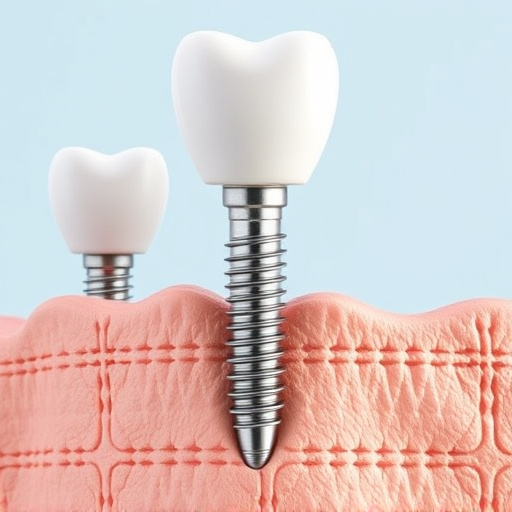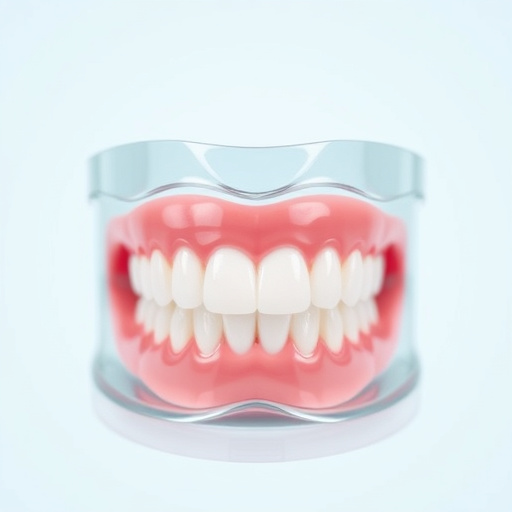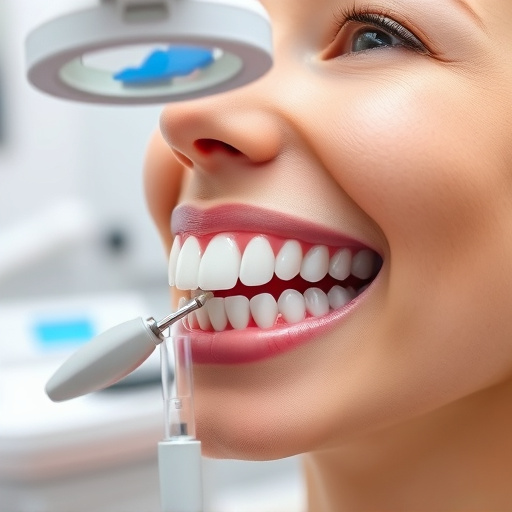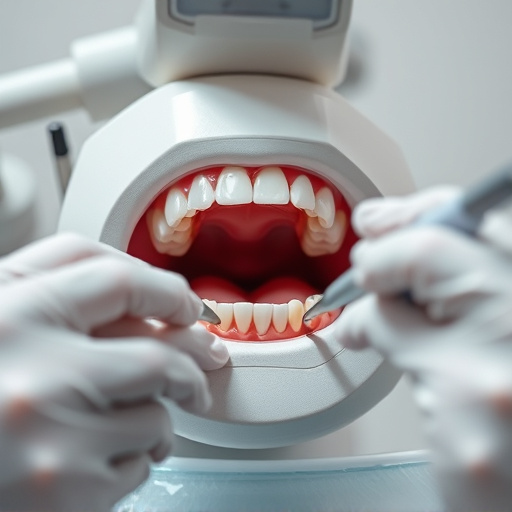Jawbone shrinkage, a common consequence of tooth loss or poor oral health, can significantly impact denture fit and stability. Denture relines treatment is crucial for combating this issue. The process involves precise measurements, custom impressions, and adding new material to dentures for a secure, comfortable fit. Regular dental check-ups and proper denture care are proactive measures to mitigate bone loss, reducing the need for frequent relines and enhancing overall oral health and aesthetic appeal through cosmetic dentistry solutions.
Jawbone shrinkage, a common consequence of tooth loss, can significantly impact the fit of dentures. As the bone structure decreases, so does the stability of dentures, leading to discomfort and reduced functionality. This is where denture relines treatment becomes essential.
This article explores how denture relines can restore comfort and mobility by adapting to the changing jawline. We’ll guide you through the process, from understanding bone shrinkage to recovering a secure fit, ensuring patients can enjoy their restored smile with confidence.
- Understanding Jawbone Shrinkage and Its Impact on Dentures
- The Role of Denture Relines in Restoring Comfort and Functionality
- What to Expect During and After the Relines Treatment Process
Understanding Jawbone Shrinkage and Its Impact on Dentures
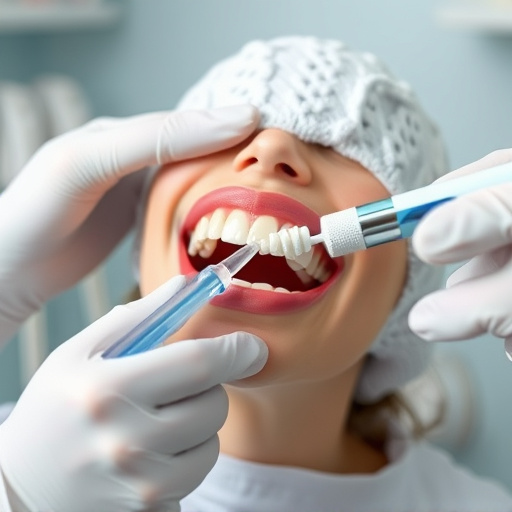
Jawbone shrinkage is a common yet often overlooked issue that can significantly impact the fit and stability of dentures. Over time, due to various factors such as tooth loss or poor oral health, the jawbone supporting your teeth can gradually atrophy and shrink. This process, known as bone resorption, causes the denture to no longer fit securely, leading to discomfort, increased chances of slippage, and even further bone loss. In fact, it’s a vicious cycle where loose dentures accelerate bone shrinkage due to reduced stimulation and load on the jawbone.
This condition necessitates a denture relines treatment to restore proper functionality and comfort. By addressing jawbone shrinkage proactively through restorative dentistry techniques, individuals can enjoy improved quality of life with secure-fitting dentures that enhance chewing efficiency and preserve overall oral health. Preventive dentistry practices like regular dental check-ups and proper care of existing dentures play a crucial role in mitigating bone loss and the need for frequent relines treatments, thereby promoting long-lasting oral well-being and aesthetic appeal through cosmetic dentistry solutions.
The Role of Denture Relines in Restoring Comfort and Functionality

Denture relines play a pivotal role in restoring comfort and functionality for individuals facing jawbone shrinkage after tooth extractions or other dental procedures. When teeth are removed, the surrounding bone tends to atrophy, leading to a shrinking of the jawline, which can cause existing dentures to no longer fit properly. This discomfort not only affects one’s ability to eat and speak comfortably but also significantly impacts overall quality of life.
Denture relines involve adding new material to the base of the denture to ensure it fits snugly against the altered jawbone structure. This treatment is particularly crucial for those who have undergone tooth extractions or received dental crowns or fillings previously. By providing a secure fit, denture relines help patients regain their ability to chew and speak naturally, thereby enhancing their overall comfort and self-confidence.
What to Expect During and After the Relines Treatment Process
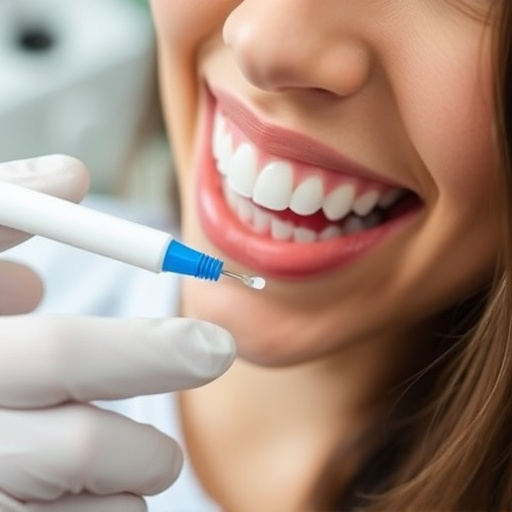
During the denture relines treatment process, patients can expect a series of precise steps designed to restore the fit and comfort of their dentures. Initially, your dentist will thoroughly examine your mouth and jawbone structure to assess the extent of bone loss or shrinkage. This may involve X-rays and 3D imaging to create detailed models of your oral cavity. Once the evaluation is complete, the dentist will take precise measurements and create a customized reline impression using special materials that ensure an exact fit.
After the treatment, patients can anticipate a more secure and comfortable denture fit almost immediately. You may experience some mild discomfort or sensitivity during the initial days as your mouth adjusts to the renewed dentures, but this is usually temporary. It’s recommended to follow post-treatment care instructions diligently, including keeping your mouth clean and avoiding hard or sticky foods until complete healing is achieved. Regular check-ins with your dentist will ensure ongoing comfort and fit, potentially reducing the need for future relines and promoting optimal oral health—a valuable aspect of comprehensive family dentistry or emergency dental care when needed.
Jawbone shrinkage can significantly impact the fit and comfort of dentures, making denture relines a crucial treatment option. By restoring the natural contour of the jaw, denture relines treatment effectively addresses discomfort and improves functionality. This non-invasive procedure offers a long-lasting solution, ensuring patients can enjoy their restored smile and improved quality of life.
